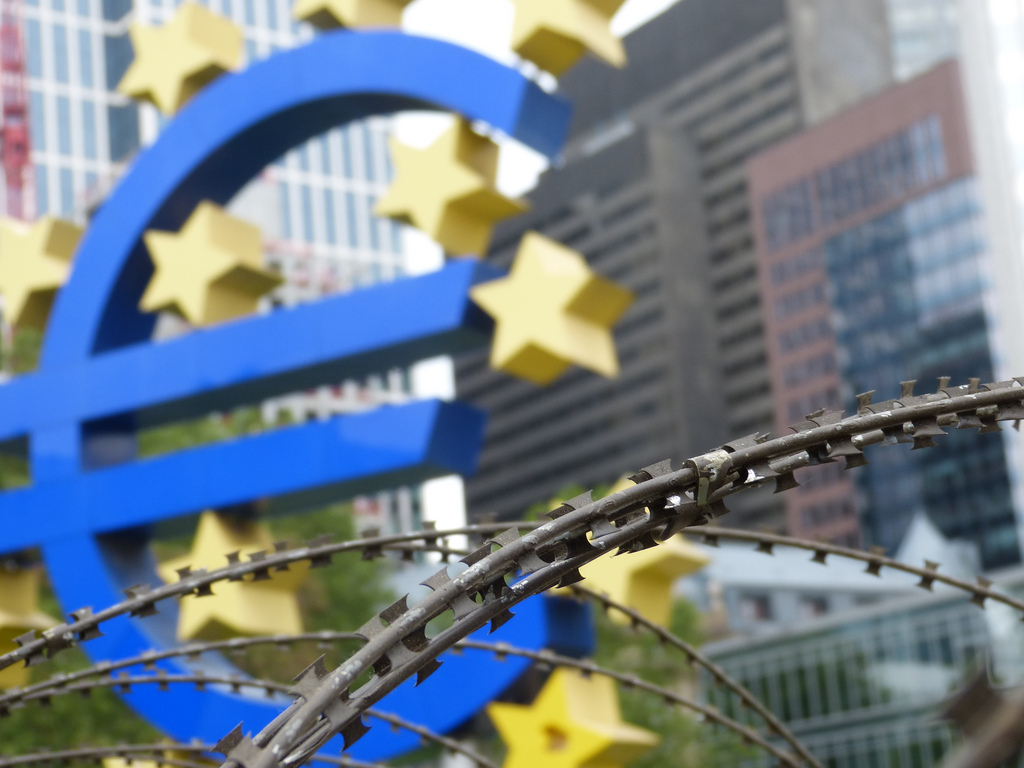
If there’s one thing true of the debate over whether the UK should leave the European Union, it’s that it’s been pretty uninspiring so far, to say the least. Even the most hardcore of politicos can’t get themselves particularly worked up about it.
That doesn’t mean it’s been without its controversies and battles. But in-fighting doesn’t generally equal exciting and stimulating debate. The ‘leave’ side seems to be in turmoil, with people dropping like flies from the two main campaigns, Vote Leave and Leave.EU. Labour Leave has just broken away from the former, and a new Grassroots Out campaign aims to hit the doorsteps where it sees the other two campaigns have failed. Headed by Nigel Farage, it already risks being seen as a Ukip front.
In contrast, the ‘remain’ camp has been relatively stoic – less EastEnders, more BBC Parliament. The arguments hurled around seemed to have been, predictably, more of a wrestle between statisticians than positive visions of the EU: “We’ll lose x jobs if we leave the EU” or “our GDP will fall by y” or “big businesses will be less likely to come to the UK.” All potentially true, but hardly rabble-rousing stuff.
The gist among some already-weary progressives seems to be that Britain Stronger in Europe (BSE) – the apparently monolithic representative of Europhiles – follows David Cameron’s renegotiations with either approval or complacence, while free movement, welfare and workers’ rights are traded away.
With Jeremy Corbyn staying out of the EU debate (he’s leaving it to the Big Beasts of Brown and co.), and with Labour Leave headed by Kate Hoey, seen as on the right of the party, it all raises one question:
Where is the left?
It’s with that question in mind that I headed to the launch of the first major attempt to give the left a voice in the EU debate: Another Europe is Possible. While the name is a bit of a mouthful, it’s fairly obvious what the campaign wants – a progressive EU (with the UK in it).
This ‘critical in’ vote is something that resonates with basically everyone I know who’s vexated by Eurozone austerity, TTIP, deregulation and the ‘neoliberal’ politics of Jean-Claude Juncker and co…but who also have an instinctive attachment to the European project, expressed through things like environmental protection, a maximum working week, holiday pay and all that other good stuff.
Needless to say, the critique of the EU as it stands was unrelenting. “EU institutions have been implicated in broken economics,” founder Luke Cooper told the 200-odd who packed out a former brewery in Brick Lane, Shoreditch – a venue just opposite where BSE held its launch a few weeks ago. “But we have to ask – what would Britain look like after Brexit?” The answer was fairly clear to most of the young crowd: not a socialist Britain, that’s for sure.
It turns out it’s a theme. “There are huge problems with the EU. But is leaving the EU a better bet?” asked Asad Rehman, a senior campaigner for Friends of the Earth. “The arguments on the pro-side are too much about fear rather than a positive vision.” Vision was talked about a lot. We certainly need one.
The left leave camp have of course slammed the EU’s rightward turn. In the same way though, they’ve slammed every European government’s rightward turn – free market dogmatism isn’t exclusive to the European Union. “Can you name an institution not dominated by neoliberalism?” asked Marina Prentoulis. “National governments are pushing a neoliberal agenda too.”
The elephant in the room was that Prentoulis represents Syriza, a party which has done the same – with an EU Commission-shaped gun to its head. But what of the new Portuguese socialist government, and movements in Spain, Italy and elsewhere that are threatened by EU institutions? Will forced capitulation become a trend?
The question made for a less enthusiastic atmosphere than would have been the case ten years ago, when progressive legislation was being passed all the time. But there weren’t many champagne corks popped for the ‘bosses club’, as the Sahaya James from the National Union of Students put it. There was more of an overwhelming and understandable fear that out of Europe, the right wing of the Conservatives would be given free rein to dismantle what’s left of the welfare state.
Above the fear, however, there was something else. A willingness to try to shift the debate – and to build a network not of politicians but of grassroots activists across the UK: activists with few illusions about the EU, other than a genuine belief that there is some hope in the left-wing movements emerging across Europe and that there could be a truly ‘social’ Europe if we fight for it – across borders.
The challenge now is to not just talk about a vision, but to actually come up with one. In the midst of a campaign seen by many socialists as dominated by stat-throwing and cosying up to business, such a positive and values-based vision for a reformed EU – albeit one “2 million miles from Cameron’s,” as Caroline Lucas MP put it – could be a game-changer. Wednesday’s launch may have been the start of something very interesting indeed.
Photo: Brainbitch/Flickr
–
If you want to support media for a different politics, you can donate or subscribe to Novara Media at support.novaramedia.com.